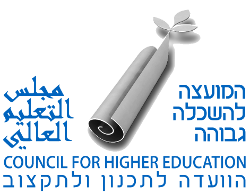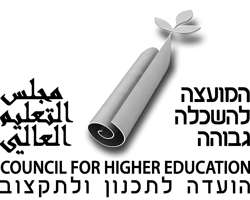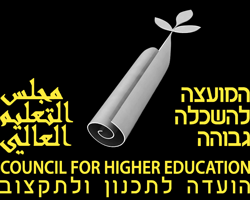KillCorona: A 4 Million USD Grant Program to Address the Coronavirus Pandemic and Disease
The Planning and Budgeting Committee of the Council for Higher Education has approved a 4 Million USD research grant program focused on slowing down the Coronavirus pandemic and generating a better understanding of the disease it causes. The grant framework, coordinated by the Israel Science Foundation (ISF), is a joint venture of the Planning and Budgeting Committee of the Council for Higher Education and philanthropic foundations including Yad Hanadiv, the Klarman Family Foundation, The Russell Berrie Foundation and the Wolfson Family Charitable Trust.
The rapid global diffusion of the Coronavirus (SARS-CoV-2), including in Israel, has created an urgent need to quickly advance research – both basic and applied – that will help slow down the pandemic outbreak and improve our understanding of Covid-19. In accordance with this pressing need, the Planning and Budgeting Committee of the Council for Higher Education has decided to allocate up to 2 Million USD, pending matching from philanthropic foundations, to a competitive grant program that will finance research projects in an accelerated timeframe (within 4 weeks).
Projects can pertain to a wide variety of fields and methods, including (but not limited to): immunology, virology, pharmacology, molecular and cell biology, epidemiology, artificial intelligence, robotics, engineering and the combinations thereof.
In this grant program, coordinated by the Israeli Science Foundation (ISF), projects will be selected on the basis of scientific excellence and potential for applicability in the short and medium term towards addressing the pandemic and its related disease.
There is a paramount need to encourage global data sharing and collaboration in order to advance discoveries related to Covid-19. Grant winners will be required to make their research results, and any other relevant information, fully and immediately available to the scientific community in Israel and abroad, in accordance with the requirements of similar grant frameworks.
It is estimated that this grant making framework will be able to fund approximately 30 projects ranging from $50,000-$200,000 per project for a duration of 6-12 months, or, when required, up to 24 months.
Prof. Yaffa Zilbershatz, Chairperson of the Planing and Budgeting Committee of the Council for Higher Education: “The overwhelming response of many in the scientific community to the pressing need to combat the Coronavirus pandemic is praiseworthy. It is indeed a source of national pride that so many research teams have shifted their activity to help accelerate the discovery of the virus’s pathogenesis, or find a vaccine and a cure for the disease it causes. I want to thank the philanthropic foundations and the Israel Science Foundation for being our valued partners also in this time of crisis.”
Prof. Yuval Dor,head of the Life Sciences and Medical Sciences Division at the Israel Science Foundation: “The scientific community in Israel immediately took up the challenge of fighting the pandemic, and did so spontaneously, without waiting for additional funding or guidance. We are witnessing a surge of ground-breaking, collaborative and cross-disciplinary research that has the potential to change the course of Covid-19. We are happy to be able to assist this research and we thank the Planning and Budgeting Committee of the Council for Higher Education and the philanthropic foundations for establishing this new grant making framework in record time.”
Examples of research projects:
- Development of new methods for detecting the spread of the virus across a population
- Understading and inhibiting SARS-Cov-2 infection
- Identification of the immunological characteristics related to Covid-19
- Covid-19 serological research
- Development of an active or passive vaccine against Covid-19
- Development of robust Covid-19 models (lab animals or tissue culture)
- Identification of existing drugs that may restrain Covid-19
- Development of new therapies against Covid-19
- Research on genetic, epigenetic and environmental factors that influence infection and the course of the disease, and predicting future outbreaks
- Covid-19 epidemiological research with implications for public health policy



